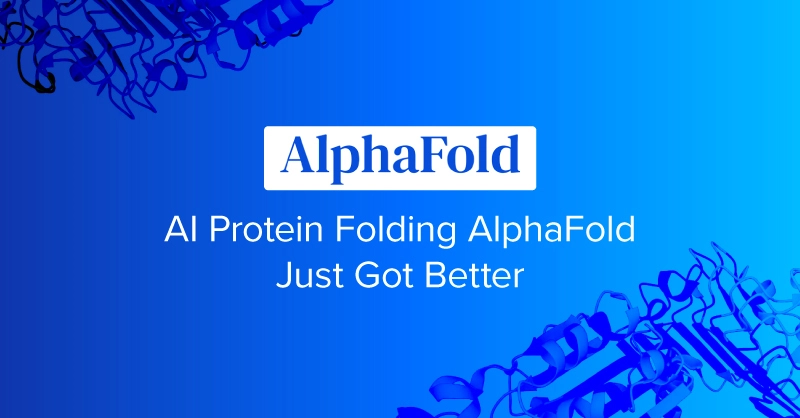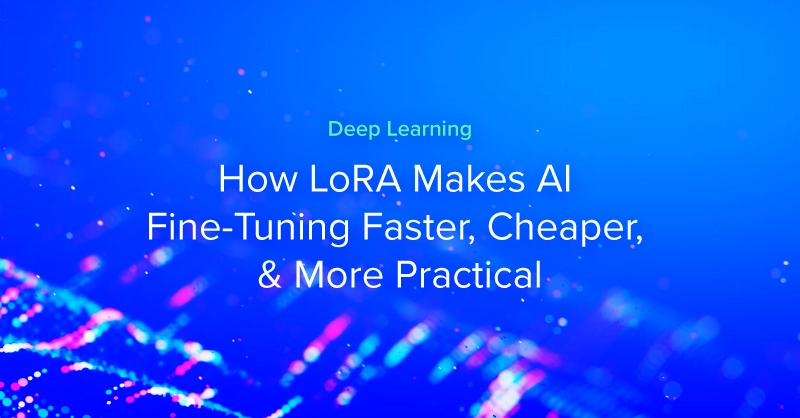
AlphaFold Improve Accruarcy with Isomorphic Labs
Since its release in 2020, AlphaFold has revolutionized how proteins, and their interactions are understood. Google DeepMind and Isomorphic Labs have been working together to build the foundations of a more powerful AI model that expands coverage beyond just proteins to the full range of biologically relevant molecules.
AlphaFold’s newest update unlocks new understanding and significantly improves accuracy in multiple key biomolecule classes, including ligands (small molecules), proteins, nucleic acids (DNA and RNA), and those containing post-translational modifications (PTMs). These different structure types and complexes are essential for understanding the biological mechanisms within the cell and have been challenging to predict with high accuracy.
Accelerating Accurate Protein Ligand Structure Prediction
Early analysis also shows that our model greatly outperforms AlphaFold2.3 on some protein structure prediction problems that are relevant for drug discovery, like antibody binding. Additionally, accurately predicting protein-ligand structures is an incredibly valuable tool for drug discovery, as it can help scientists identify and design new molecules, which could become drugs.
Current industry standard is to use ‘docking methods’ to determine interactions between ligands and proteins. These docking methods require a rigid reference protein structure and a suggested position for the ligand to bind to.
AlphaFold-latest model sets a new bar for protein-ligand structure prediction by outperforming the best reported docking methods, without requiring a reference protein structure or the location of the ligand pocket — allowing predictions for completely novel proteins that have not been structurally characterized before.

.svg?format=webp)
.svg?format=webp)
.svg?format=webp)
It can also jointly model the positions of all atoms, allowing it to represent the full inherent flexibility of proteins and nucleic acids as they interact with other molecules — something not possible using docking methods.
By unlocking the modeling of protein and ligand structures together with nucleic acids and those containing post-translational modifications, our model provides a more rapid and accurate tool for examining fundamental biology.
Revolutionizing the Life Science Industry
AlphaFold has already catalyzed major scientific advances around the world. Now, the next generation of AlphaFold has the potential to help advance scientific exploration at digital speed. The new AlphaFold model’s dramatic leap in performance shows the potential of AI to greatly enhance scientific understanding of the molecular machines that make up the human body — and the wider world of nature.
The dedicated team at Google DeepMind and Isomorphic Labs have made great strides forward on this critical work and we look forward to seeing their continued progress.
Exxact workstations can be outfitted with Alphafold as a supported software. Since AlphaFold does not support multi-GPU support, configure your workstation with at least 1 GPU and optimize it for your most compute intensive application. Contact us today for more information!

AlphaFold Update Drastically Improves Accuracy in Docking, Nucleic Acids, & PTMS
AlphaFold Improve Accruarcy with Isomorphic Labs
Since its release in 2020, AlphaFold has revolutionized how proteins, and their interactions are understood. Google DeepMind and Isomorphic Labs have been working together to build the foundations of a more powerful AI model that expands coverage beyond just proteins to the full range of biologically relevant molecules.
AlphaFold’s newest update unlocks new understanding and significantly improves accuracy in multiple key biomolecule classes, including ligands (small molecules), proteins, nucleic acids (DNA and RNA), and those containing post-translational modifications (PTMs). These different structure types and complexes are essential for understanding the biological mechanisms within the cell and have been challenging to predict with high accuracy.
Accelerating Accurate Protein Ligand Structure Prediction
Early analysis also shows that our model greatly outperforms AlphaFold2.3 on some protein structure prediction problems that are relevant for drug discovery, like antibody binding. Additionally, accurately predicting protein-ligand structures is an incredibly valuable tool for drug discovery, as it can help scientists identify and design new molecules, which could become drugs.
Current industry standard is to use ‘docking methods’ to determine interactions between ligands and proteins. These docking methods require a rigid reference protein structure and a suggested position for the ligand to bind to.
AlphaFold-latest model sets a new bar for protein-ligand structure prediction by outperforming the best reported docking methods, without requiring a reference protein structure or the location of the ligand pocket — allowing predictions for completely novel proteins that have not been structurally characterized before.

.svg?format=webp)
.svg?format=webp)
.svg?format=webp)
It can also jointly model the positions of all atoms, allowing it to represent the full inherent flexibility of proteins and nucleic acids as they interact with other molecules — something not possible using docking methods.
By unlocking the modeling of protein and ligand structures together with nucleic acids and those containing post-translational modifications, our model provides a more rapid and accurate tool for examining fundamental biology.
Revolutionizing the Life Science Industry
AlphaFold has already catalyzed major scientific advances around the world. Now, the next generation of AlphaFold has the potential to help advance scientific exploration at digital speed. The new AlphaFold model’s dramatic leap in performance shows the potential of AI to greatly enhance scientific understanding of the molecular machines that make up the human body — and the wider world of nature.
The dedicated team at Google DeepMind and Isomorphic Labs have made great strides forward on this critical work and we look forward to seeing their continued progress.
Exxact workstations can be outfitted with Alphafold as a supported software. Since AlphaFold does not support multi-GPU support, configure your workstation with at least 1 GPU and optimize it for your most compute intensive application. Contact us today for more information!




.jpg?format=webp)